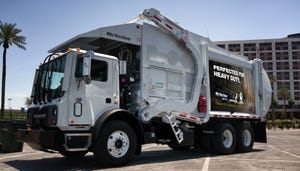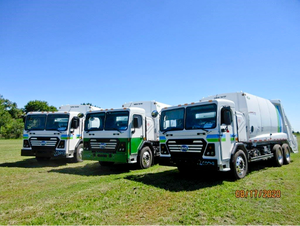New Strategy Aims to Tackle Food Waste in Canada
The strategy was released to encourage systematic and consumer behavior change to reduce food waste in Canada.
A new collaborative strategy tackles food waste prevention in Canada. The effort is led by the National Zero Waste Council, and the strategy includes input from more than 900 stakeholders from the government, agriculture, environmental, corporate, community and charitable sectors.
"A Food Loss and Waste Strategy for Canada" was released in May 2018 with the goal of encouraging both systematic and consumer behavior change that will lead to a reduction of the climate, water, energy and soil impacts of producing and distributing food that goes to waste, as well as a decrease in garbage disposal costs for municipalities, the report states.
“More than one-third of food produced and distributed in Canada never gets eaten, with significant environmental, economic and social consequences,” according to the report. “This grossly inefficient use of resources forces local governments into excessive costs for waste disposal, generates avoidable greenhouse gases at all stages of the production and distribution chain and costs the Canadian economy up to $100 billion annually. In addition, organic waste in landfills, largely food, generates 4 percent of Canada’s greenhouse gases.”
Looking at organizations and policies in Canada and around the world, the council analyzed food waste prevention challenges, best practices, new technologies and consumer education campaigns in order to create a full picture and to find ways to design an aligned and collaborative strategy.
“Our rationale for the strategy was to do a systems look at what was needed and try to make sure that, as much as possible, we are all moving in the same direction, which is why we wanted our Canadian government to articulate a target,” says Ann Rowan, program manager of the National Zero Waste Council.
The National Zero Waste Council was founded by Metro Vancouver, in conjunction with the Federation of Canadian Municipalities. The council works on a variety of waste issues, but the organization recognizes food waste as a top priority.
Ultimately, the strategy seeks to prevent food waste before it starts, improve systems for recovering food and distributing it appropriately to food insecure populations and find better strategies for recycling the energy and nutrients from the unavoidable food waste.
The strategy’s top recommendations include:
Calling for the federal government to publicly announce a national target for food waste reduction. In particular, advocating for the federal government to actively support a national food loss and waste reduction target of 50 percent by 2030.
Reducing confusion over date labeling of food products.
Advocating for a systems approach that aims to change practices and policies at key leverage points along the value chain.
Promoting innovation and investment in emerging technologies and community infrastructure to support food waste prevention.
Providing economically viable opportunities for businesses engaged in the food chain.
Encouraging the redistribution of food through appropriate channels.
“We really want to stress that we need policies that will support reducing food waste,��” says Rowan. “Innovation is going to be key. The new digital technologies for managing inventories are going to be important. The council has also adopted Love Food Hate Waste from WRAP UK, which deals with how you begin to change household behavior around food waste.”
In addition to a public release, “A Food Loss and Waste Strategy for Canada” was provided to Canada’s Agriculture and Agri-Food Minister and Environment and Climate Change Minister to help inform the development of the national Food Policy for Canada.
About the Author(s)
You May Also Like


